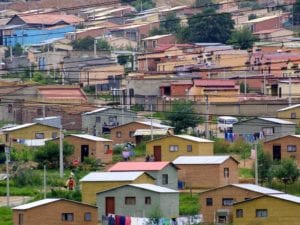 Around 4 000 lower-income families are expected to benefit from the City of Cape Town’s new inner-city social housing initiative which was launched yesterday.
Around 4 000 lower-income families are expected to benefit from the City of Cape Town’s new inner-city social housing initiative which was launched yesterday.
The initiative will see the development of affordable housing projects on prime land owned by the City.
According to Brett Herron, the City’s Mayoral Committee Member for Transport and Urban Development, the projects are situated less than 5km away from the central business district within the Voortrekker Road Corridor Integration Zone (VRCIZ).
“VRCIZ is one of three integration zones where the City will spend the bulk of its capital budget on infrastructure aimed to transform Cape Town’s spatial reality. The significance of the location of these sites resonates when one bears in mind that the VRCIZ will link the Bellville, Maitland, Parow, Goodwood and Salt River CBDs with the Cape Town CBD via Voortrekker Road,” Herron said.
Reversing the legacy of apartheid social planning
He added: “By prioritising dense, transit-oriented growth and development in this integration zone, the City seeks to create more inclusive communities with access to improved services, job opportunities, and affordable housing and public transport.”
Speaking at the launch, City of Cape Town Executive Mayor, Patricia de Lille said the city had turned a corner in its approach to affordable housing and to reversing the legacy of apartheid spatial planning.
“Key to achieving our goals of spatial transformation is for Transport and Urban Development Authority (TDA) to implement the City’s Transit-Oriented Development (TOD) strategy which aims to create a compact and connected city,” she said.
Partnering for change
The mayor also pointed out that partnerships with the private sector, social housing institutions, developers and the community would play a central role with this housing inititive and future projects.
The city identified 11 sites in Salt River, Woodstock and the inner-city for the affordable housing development and it plans to make five of these available to the private sector for the development of inclusionary and affordable housing opportunities.
Three of the sites have already been allocated to social housing institutions for the development of social housing opportunities, and two sites have been identified for Cape Town’s first inner-city transitional housing projects.
 Around 4 000 lower-income families are expected to benefit from the City of Cape Town’s new inner-city social housing initiative which was launched yesterday.
Around 4 000 lower-income families are expected to benefit from the City of Cape Town’s new inner-city social housing initiative which was launched yesterday.





